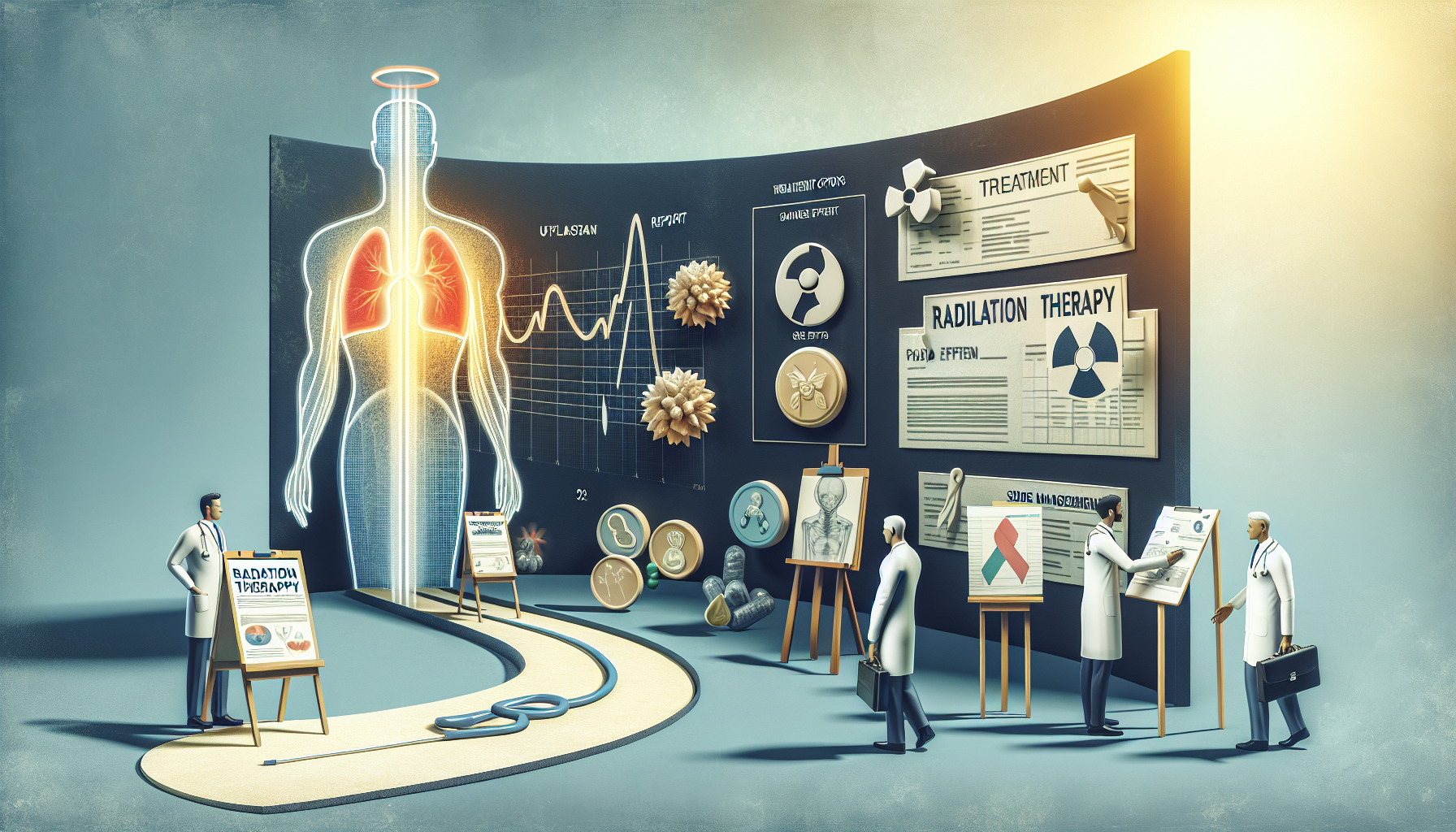Mesothelioma Medical Technology Advances: A Journey of Hope & Support
Hello, my dear friend. I am a registered oncology nurse with over 10 years of experience in guiding patients and families through the complex world of mesothelioma. Today, I want to share with you the latest medical technology advances that are not only transforming treatment options but also bringing fresh hope and improved quality of life. As someone who has been closely involved with many inspiring stories of resilience, I hope that this comprehensive guide will offer you both practical insights and the compassionate support you need along your journey.

Understanding Mesothelioma: Diagnosis and Staging
When you or a loved one receives a diagnosis of mesothelioma, it can feel like the ground has shifted beneath your feet. I understand the fear and uncertainty that accompanies this news. This section explains the basics of mesothelioma diagnosis and staging using current, respectful medical advances.
Types of Diagnostic Biopsies
Biopsies are essential in confirming a mesothelioma diagnosis. The procedures include:
- Thoracoscopy – A minimally invasive procedure that allows doctors to take tissue samples from the pleural lining of the lungs.
- Thoracentesis – This involves the removal of fluid from the pleural cavity, which is then analyzed for cancer cells.
Understanding these techniques empowers you to ask your healthcare provider detailed questions about your diagnostic process.
The Mesothelioma Staging System
Staging mesothelioma typically ranges from Stage 1 to Stage 4, which indicates:
- Stage 1: The cancer is localized and has not spread beyond the pleura.
- Stage 2: The tumor has grown but remains limited to the affected area.
- Stage 3: The cancer has spread locally to nearby organs or tissues.
- Stage 4: The disease has metastasized to distant sites in the body.
Please note that these descriptions are general guidelines. I encourage you to discuss the specifics with your healthcare team.
Advances in Mesothelioma Treatment Options
Medical technology in mesothelioma care is evolving. Every advancement brings with it the promise of enhanced quality of life and extended survival. Here are some of the remarkable treatment options available today.
Innovative Therapies
I have closely witnessed how emerging therapies can bring comfort and hope:
- Mesothelioma Immunotherapy: This treatment boosts the patient’s own immune system to recognize and combat cancer cells, offering new hope where traditional treatments have faltered.
- Mesothelioma Gene Therapy: Researchers are exploring ways to target cancer at its genetic roots, potentially reducing tumor growth and spread.
- Tumor Treating Fields (TTF): This cutting-edge therapy uses low-intensity electric fields to disrupt cancer cell division and show promise in clinical trials.
- Clinical Trials: For both new drugs and combination approaches, clinical trials remain a critical avenue for determining the most effective treatments. I’ve seen patients find solace and strength just by knowing they’re part of a community working toward a cure.
Personalized Treatment Centers
In the United States, some of the best mesothelioma treatment centers have integrated these innovations into their care approach. For instance, centers specializing in immunotherapy and gene therapy are offering tailored treatment plans based on each patient’s unique genetic profile and overall health condition. This personalized strategy can significantly improve outcomes and quality of life.
Emotional and Practical Support for Every Step
Beyond the medical statistics and treatment protocols, I want you to know that you are not alone. Navigating a mesothelioma diagnosis is as much an emotional journey as it is a physical one. Here are some ways I have found particularly helpful and that I recommend to others:
Managing Anxiety and Fear
Living with or caring for someone with mesothelioma can be overwhelming. Here are some strategies that may help ease your anxiety:
- Mindfulness and Deep Breathing: Simple mindfulness practices can ground you in the present moment and reduce overwhelming fear. Even a five-minute session can provide relief.
- Structured Routines: Maintaining a daily routine helps bring predictability during uncertain times, and can also improve sleep and overall mood.
- Seek Professional Support: Speaking with a counselor experienced in oncology care or joining support groups can validate your feelings and provide actionable coping strategies.
Navigating Conversations with Loved Ones
Open communication is essential. Often, I encourage my patients and their families to:
- Discuss fears honestly and ask for help when needed.
- Share information about the diagnosis and treatment process to alleviate misunderstandings.
- Schedule regular check-ins with close friends or family to keep the support network robust.
I remember a time when I felt completely overwhelmed by uncertainty. But sharing my fears with trusted colleagues and leaning on the strength of my patients taught me that together, even the most daunting battles become manageable. I urge you to embrace this community of support and take each day as it comes.
Investigating Medical Research and Resources
Staying informed about research is empowering. I regularly review updates from reputable sources such as the National Cancer Institute, the American Cancer Society, and journals like the New England Journal of Medicine. Here are a few key points:
Latest Research Highlights
- Mesothelioma Immunotherapy Drugs: Recent studies have shown promising results in extending patient survival and reducing tumor size. These breakthroughs are currently being tested in several phase III clinical trials.
- Gene Therapy Clinical Trials 2025: Emerging trials are exploring the potential of gene therapy to significantly alter the course of treatment for mesothelioma patients.
- Tumor Treating Fields Therapy Effectiveness: Research into TTF is ongoing, with early results suggesting that it can be an effective adjunct to chemotherapy.
- Mesothelioma Clinical Trials for New Treatments: Ongoing clinical trials continue to test innovative approaches. Participation in these studies is a testament to hope and the collective effort to overcome cancer.
I encourage you to consult with your healthcare team about the possibility of joining clinical trials if appropriate. It might be a chance not only for advanced treatment but also to contribute to the collective knowledge in the fight against mesothelioma.
Actionable Next Steps and Community Resources
As we near the end of this discussion, I want to offer concrete next steps. Whether you are a patient, a caregiver, or a friend, here is a compassionate checklist to move forward:
Step-by-Step Guide for Your Next Steps
- Consult with Specialists: Schedule an appointment with a mesothelioma specialist to discuss diagnostic findings and treatment options in detail.
- Explore Clinical Trials: Ask your doctor about ongoing clinical trials at leading treatment centers. Check resources like the Mesothelioma Applied Research Foundation website for current opportunities.
- Establish a Support Network: Connect with local support groups or trusted counselors specialized in oncology care. Consider internal resources such as our Mesothelioma Patient Stories page or our Caregiver Support resource for additional insights.
- Stay Updated: Medical advances evolve rapidly. Subscribe to newsletters from reputable organizations and follow recent research to stay informed.
- Embrace Self-Care: Prioritize activities that nurture both body and mind. Whether it’s rhythmic breathing exercises, journaling, or simply walking in nature, every positive step counts.
Guidance on Utilizing Community Resources
If you ever feel overwhelmed, remember that seeking help is a sign of strength. Reach out to patient advocacy groups, counseling services, and local NCI-designated cancer centers. These resources have been invaluable to me and many others as we navigate these turbulent times together.
Transparency on Support and Resources
I want to be completely transparent: while this platform is dedicated to offering comprehensive, empathetic information about mesothelioma without cost, it is supported by ethical partnerships and modest sponsorships that help maintain our free resources. This support ensures that you receive accurate, up-to-date information, and compassionate guidance at all times.
Final Thoughts: A Message of Hope
When facing a diagnosis as challenging as mesothelioma, every shred of hope matters. I have seen firsthand the strength and resilience of those who stand together in the face of uncertainty. Medical technology is advancing, offering novel treatments and improving quality of life. More importantly, the power of community and compassion can transform fear into a shared journey of hope.
Every step you take, no matter how small, is part of a larger journey toward healing. Please know that with each new day, hope grows stronger, and you are never alone in this fight. Reach out, share your story, and lean on those who care.
Information on treatment guidelines current as of May 2025.
Additional Resources and References
For further information, I encourage you to explore these reputable sources:
This comprehensive guide is here to support you every step of the way. Whether it’s understanding your diagnosis, exploring innovative treatments, or simply finding the strength to speak openly about your fears, I hope these insights bring a measure of comfort and practical guidance.






